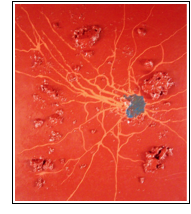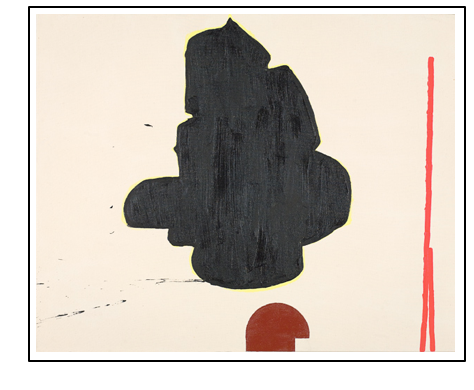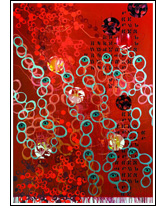L'alimentation, le cerveau et l'éducation
 Que ton aliment soit ta seule médecine. (Hippocrate)
Que ton aliment soit ta seule médecine. (Hippocrate)
Si l’esprit se nourrit de connaissances, le cerveau quant à lui se repaît d’aliments plus substantiels. Le Globe and Mail présente un survol intéressant de ce que la science sait des effets de l’alimentation sur le cerveau, notamment au regard de l’apprentissage (What to feed your brain to get back in gear). En raison de la sensibilisation des élèves à une bonne nutrition et des efforts des cafétérias d’école à cet égard (New York Times : The School Cafeteria, on a Diet), l’information est à transmettre aux élèves, voire aux parents.
Les faits saillants :
Petit Déjeuner
Children who miss out on breakfast are more sluggish, less attentive and have less energy for morning activities compared with their peers who eat the morning meal.
Breakfast foods such as cereal, toast and fruit raise blood glucose levels, which in turn fuels the brain after a night of fasting. Glucose not only gives the brain an energy boost, it’s also used to make acetylcholine, a memory neurotransmitter.
In a study [...] boys and girls performed better on memory tests after eating oatmeal compared with sugary cereal.
It’s thought that breakfast foods that provide a slower and more sustained release of glucose can boost memory and attention. Slowly released breakfast foods [...] include oatmeal (though not instant), bran cereals, whole-grain breads with nuts and seeds, apples, oranges, grapefruit, berries, grapes, pears, milk, yogurt and soy beverages.
Collations
Your brain relies on a steady stream of glucose, so you need to fuel it every three to four hours by eating snacks. [...] Try fruit and almonds, a decaf latte, yogurt and fruit, whole-grain crackers and part skim cheese or an energy bar..
Bleuts
Studies done on elderly rats have shown that a blueberry-rich diet – equal to one-half cup daily for humans – improved memory, co-ordination and balance.
Fer
Studies have shown that low blood levels of iron (ferritin) – even in the absence of anemia – can impair concentration and memory. Iron helps transfer oxygen to brain cells and it’s used to make neurotransmitters that play a role in concentration and learning.
Your brain relies on a steady stream of glucose, so you need to fuel it every three to four hours by eating snacks. [...] Try fruit and almonds, a decaf latte, yogurt and fruit, whole-grain crackers and part skim cheese or an energy bar..
Toujours sur le sujet de l’alimentation, une étude révèle que des colorants artificiels et agents de conservation couramment présents dans les aliments pour enfants peuvent causer l’hyperactivité et le déficit d’attention (New York Times : Some Food Additives Raise Hyperactivity, Study Finds). Il est encore trop tôt pour sauter aux conclusions, quoique les auteurs soulèvent la possibilité de bannir les aliments concernés des cafétérias d’école. Plusieurs avaient déjà constaté la coïncidence de la hausse des cas de trouble déficit de l’attention/hyperactivité chez les enfants et le marketing de l’industrie agro-alimentaire ciblant les enfants.
Mise à jour, 13 septembre 2007 | Leslie Beck signe un autre article dans le Globe and Mail (If you think a pill might fix your memory, fortet it) dans lequel elle s’intéresse sur les suppléments de toutes sortes qui prétendent améliorer le fonctionnement du cerveau. Les faits saillants :
Vitamines B
These nutrients play a critical role in manufacturing brain chemicals, or neurotransmitters, and releasing energy in brain cells.
Whether B-vitamin supplements boost memory in people with normal homocysteine remains to be proven.
To help preserve (not increase) your memory, it makes sense to consume adequate B vitamins from foods and a multivitamin. Good sources of folate include foods such as lentils, spinach, asparagus, avocados and oranges. Vitamin B12 is found in lean meat, fish, poultry, dairy products and enriched soy beverages.
Choline
Produced in the body and found in liver, egg yolks, peanuts, peas and soybeans, choline is used to transmit nerve impulses and maintain healthy brain cell membranes. This vitamin-like compound is also a building block for acetylcholine, a memory neurotransmitter.
In studies conducted in healthy adults and elderly people with cognitive impairment, choline supplements did not improve memory.
Bacopa
Lab studies suggest that compounds in bacopa modulate the release of memory neurotransmitters, enhance nerve impulse transmission and help repair damaged brain cells.
One small study found that taking 300 milligrams of bacopa every day for 12 weeks improved learning, memory and information processing in healthy men and women. Another study tested bacopa in 76 healthy adults aged 40 to 65 for three months, and concluded the herb had no effect on short-term memory, attention or retrieval of information from long-term memory.
Three studies published two decades ago revealed the supplement improved cognitive function in patients with various types of dementia. Only one study conducted in 12 adults (published in 1985) suggests vinpocetine can boost memory in healthy people.
Compounds in ginkgo are thought to improve circulation to the brain, make blood cells less sticky and protect brain cells from damaging free radicals.
Research suggests that taking 120 milligrams of ginkgo daily can also improve memory in young and middle-aged people with no complaints of memory loss. However, findings from studies conducted in healthy older adults are less encouraging. In two trials of more than 200 adults over age 60, ginkgo did not improve memory.
En conclusion
Most scientists contend that brain power cannot be found in supplements.
To improve mental fitness, you’re better off keeping your mind active and participating in aerobic exercise.
That’s in addition to starting each day with breakfast and eating more blueberries, leafy greens and fish, which have been shown to improve your memory and may even protect against age-related brain decline.
(Image thématique : Bordeaux Fruit, par M. Francie)
Par ricochet :
Les effets de l’alcool sur le cerveau des jeunes
Les effets de l’exercice sur le cerveau
Les effets de l’alcool sur le cerveau
L’exercice physique augmente la neurogenèse
L’éducation passe aussi par l’assiette
Vous pouvez suivre les commentaires en réponse à ce billet avec le RSS 2.0 Vous pouvez laisser une réponse, ou trackback.









Il semblerait également qu’il puisse y avoir un lien entre la surconsommation d’aliments riches en gluten (comme la plupart des céréales et le pain) et les troubles d’attention. Ça n’aide pas à trouver quoi servir pour déjeuner…
Bonjour,
J’ai vu que votre site parle d’éducation.
Je suis dans la même veine que toi et de la philospohie.
Voici mon blog, ça pourrait t’intéressé.
Si tu veux prendre le contenu et le mettre sur ton site je t’y autorise.
Une seule solution simple à tous nos problèmes :
Combattre l’individualisme par l’entraide
Comment s’y prendre? :
http://dominoeffectfrench.blogspot.com
Merci
David